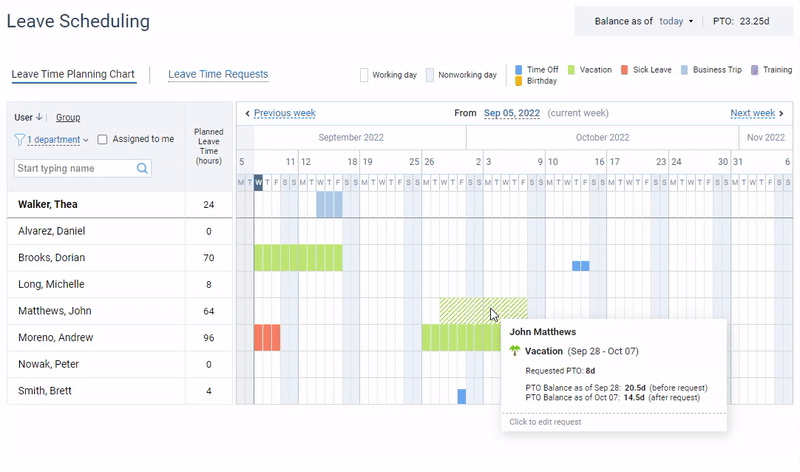Work and employment has seen a drastic change for the last few years. The COVID-19 pandemic made businesses switch to remote work, adapt alternative work schedules and introduce other means of retaining the existing workforce and saving costs. Casual contract employment has become increasingly popular recently as businesses look for flexibility in their operations and show increased interest in cost-cutting approaches.
It is a common misperception that contract workers are not employees simply because of their limited length of service and benefits. In reality, they are entitled to some employee benefits and even increased compensation, not to mention other responsibilities that you are obliged to carry out as an employer according to your state laws and regulations. To avoid risks associated with casual contract workers, continue reading.

What Is a Casual Contract?
A casual contract is a type of employment contract that puts employees on standby to do work as required without fixed hours or attendance arrangements. Casual employment is not defined in employment laws, but it is an existing form of employment that helps businesses in situations when the employer can’t predict when the work needs to be done, or when the work needs to be done quickly.
Casual contract doesn’t guarantee any hours of work, pattern of work or ongoing expectation of employment for employees. Under this type of contract, the employer doesn’t have to offer work to the employee, and the employee doesn’t have to accept work if it’s offered. But if they accept work, it is treated as a new period of employment. At the same time, when an employer stops offering work, it’s not considered a dismissal because they are not obliged to offer work in this type of employment.
A casual contract may be indefinite or fixed-term. If a casual contract doesn’t define a minimum number of working hours per week, this agreement may be considered a “zero-hours contract.”
Zero-hours contract (non-guaranteed hours contract) is a type of casual employment contract where an employer is not obliged to offer the employee any employment assignments, but the employee is obliged to accept every assignment, otherwise, they can face disciplinary action if they repeatedly reject work or turn it down without valid reasons. Unlike permanent employment contracts, zero-hour contracts do not include information about the standard rate of pay, regular scheduling or benefits, as zero-hour employees are not typically offered such protections.
Businesses Pros And Cons Of Casual Contract
When weighing up the pros and cons of casual contracts, employers are not always aware of the state and local laws regulating casual employment, the rights of casual employees, and the potential risks of recruiting casual employees. What are the pros and cons of casual contract workers for businesses – let’s find out.
Pros of Casual Contracts
- Flexible workforce for unpredictable periods of work
- Administrative convenience as there is reduced payroll and absence management paperwork
- Employers don’t need to keep track of leave balances
- Employers can assess individuals for a position, before offering them a full-time or a part-time role
- No benefit liabilities as most casual contract employees are not entitled to have benefits such as life insurance and medical insurance
Cons of Casual Contracts
- Limited employee job functions
- Limited employee growth and skill development
- Can be costly due to the requirement to pay the casual loading
- Casual employees can be unavailable for work more regularly than permanent employees
- Casual employees can resign from work without notice
What Rights Do Employees Have In a Casual Contract?
Laws regulating casual contracts differ by state and region. Let’s see how Australian, New Zealand, UK, and Canadian laws define casual contract employment and what rights employees have under them.
Casual contract employment in Australia
The Fair Work Ombudsman defines casual contract employment as an employee who is employed by the hour and is called in as needed.
Under the National Employment Standards (the NES), casual contract employees are entitled to:
- access a pathway to become a permanent employee
- unpaid carer’s leave
- unpaid compassionate leave
- unpaid family and domestic violence leave
- unpaid community service leave
- long serving casuals are eligible for long service leave (in some states and territories)
Casual contract employees are also paid a casual loading – a higher pay rate for being a casual employee. They don’t get paid days off, notice of termination, or redundancy pay, even if they work regularly for a long time.
Casual contract employment in New Zealand
In New Zealand, casual employment is not defined in state laws and usually refers to situations where employees have no work schedule and no expectation of employment. Casual employees are guaranteed either annual leave pro rata or an extra 8% holiday pay.
Casual workers have the right to sick leave and bereavement leave six months after they have started working if, during that time they have worked:
- an average of at least 10 hours a week; and
- at least one hour a week or 40 hours a month.
Similarly, they are entitled to parental leave and parental leave payments if they meet the eligibility criteria.
Casual contract employment in the UK
The UK Government defines casual contract and zero-hours contract the same as on-call work that employers are not obliged to offer and employees don’t have to accept and do.
In the UK, casual workers are entitled to statutory annual leave and the National Minimum Wage in the same way as regular workers. But, unlike regular workers, casual employees can accept work from other employers and ignore a respective clause in their contract if there is one.
Casual contract employment in Canada
According to the Canadian Government, casual contract employees are hired for any number of periods, each of them can not exceed 90 working days in one calendar year.
Casual workers in Canada are entitled to limited benefits. They don’t earn annual leave credits or vacation leave with pay, but they are paid 4% vacation pay on all hours worked, including overtime hours. Casual workers are not granted paid sick leave, but they earn sick leave credits that remain in the casual worker’s leave account for future use.
What To Include In a Casual Worker Contract
It’s recommended that a casual contract outlines the details of employment and covers the following:
- Job title, duties, and expectations. An obligation rather than a recommendation in any type of employment contract. Both the employer and the employee must understand the essence of the role, essential functions, and expectations.
- Hours of work. Specify, if relevant, the minimum and the maximum number of working hours per week.
- Compensation. Casual contracts must detail the salary or hourly rate, payment frequency, and compensation for employment instability.
- Leave entitlement and pay. Describe paid leaves the worker is entitled to and procedures for managing employee absences.
- Holiday entitlement and holiday pay, including their public holiday entitlement.
- Employee benefits for a casual worker.
- Casual conversion clause regulating whether a casual employee can become a permanent part-time or full-time employee.
- Confidentiality. If a casual worker has access to sensitive information, include a statement in the contract obliging them not to disclose it.
- Dispute resolution. These include disciplinary and grievance procedures or where these can be found.
- Termination. This part includes details of fair contract termination and provides a minimum notice period.
For more specific details, check out casual contract templates for the UK, Australia, and Canada.
Ready to Manage Casual Contract Workers?
Casual contract employees are hard to manage because they don’t follow an established work schedule and have limited employee benefits. To make sure they are fairly paid, you might want to introduce a time and attendance tracking system.
For example, actiPLANS is leave management software with a team calendar, custom leaves, and absence statuses, automated balance calculations, and more. It also allows you to add and remove employees in a few clicks and set up their work schedules and account parameters in a few minutes.

Leave management in actiPLANS – approve, modify, or reject leave requests and leave comments
And if you connect actiTIME time tracking software with actiPLANS, you’ll get a powerful time and absence management environment that will sync the data between the systems and facilitate your project management, leave tracking, and accounting routines. Try actiPLANS for free using a 30-day trial (no credit card required).



